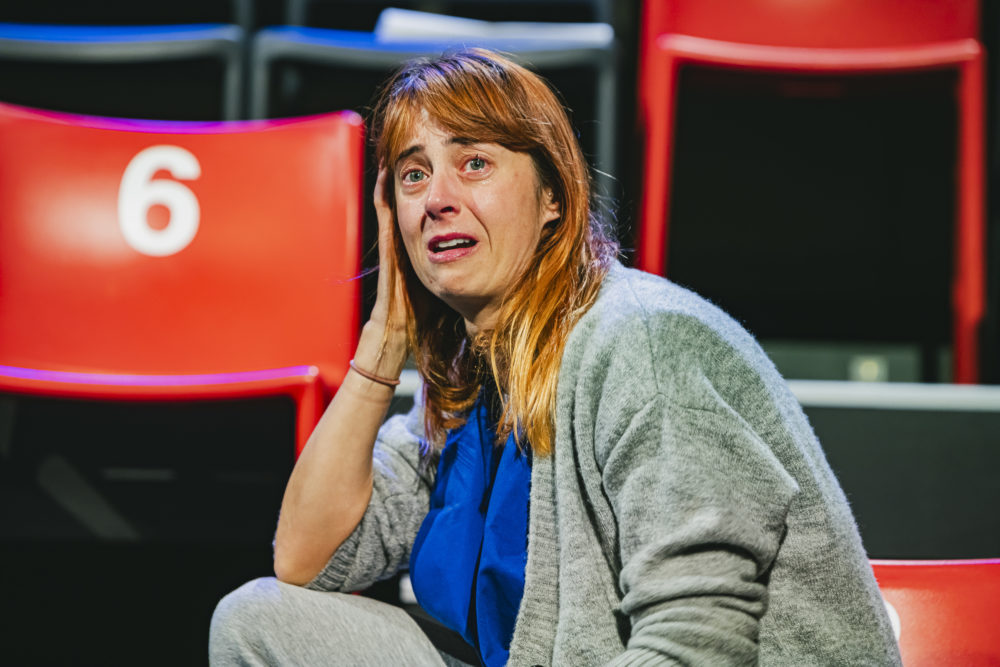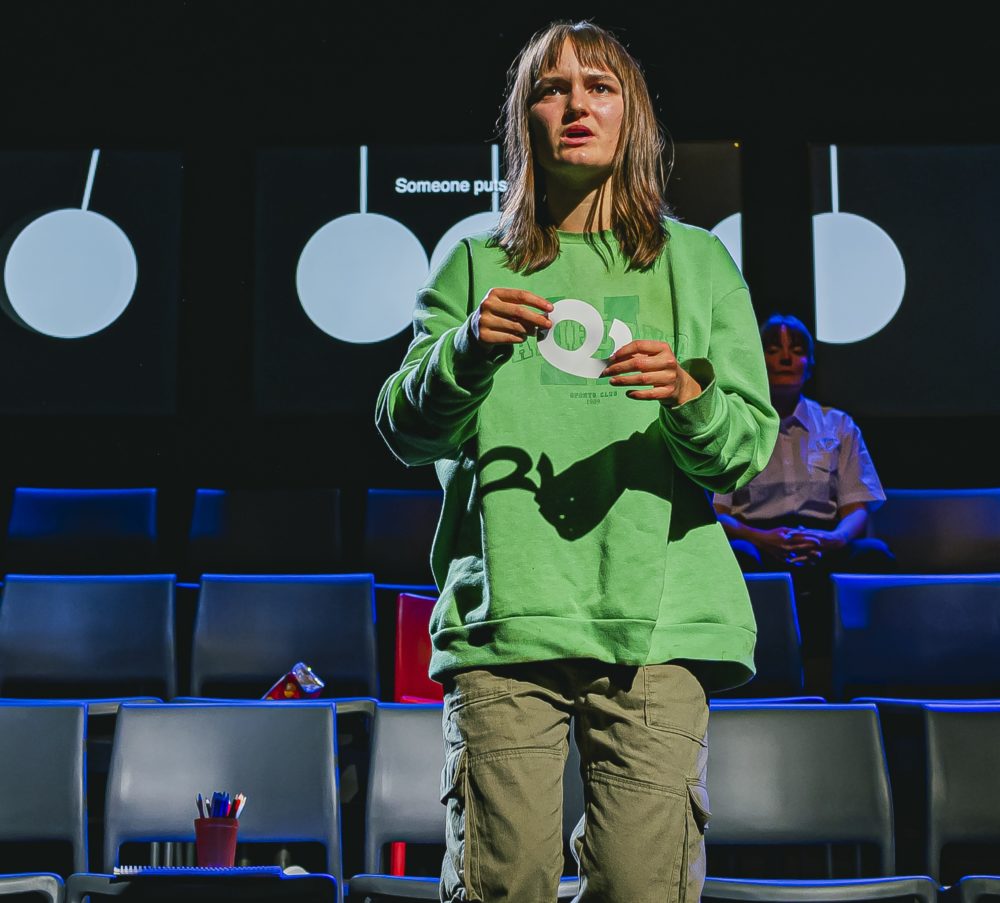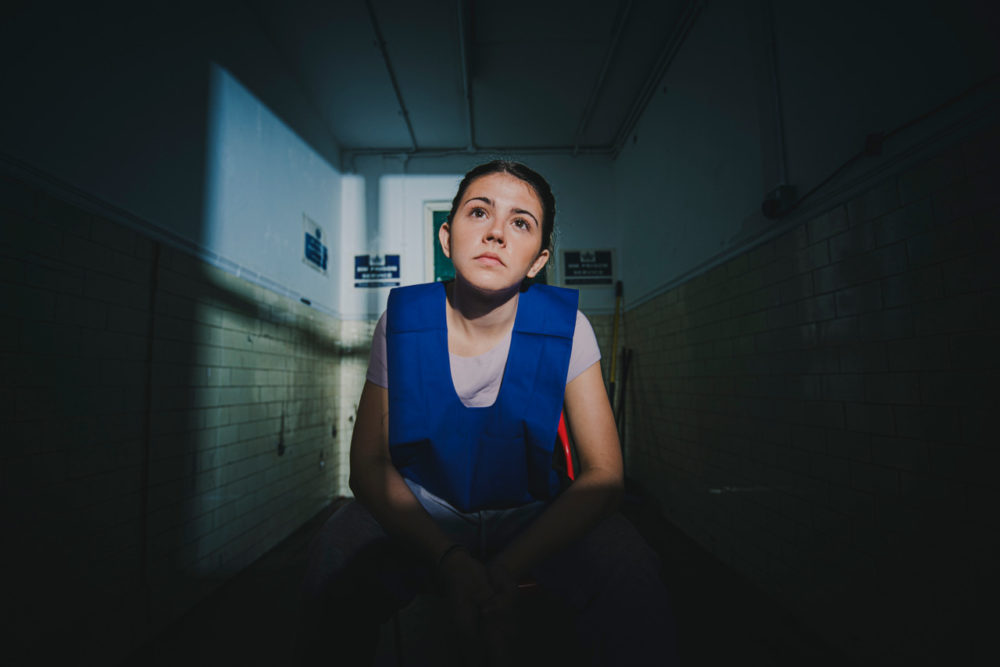‘A Visit’ reviewed: A must-see force of a production

Molly Stubbs
For those of us on ‘the outside’, our knowledge of incarcerated individuals, female prisoners specifically, is received primarily through statistics.
For example, did you know that women, despite only making up 4% of the UK’s prison population, are almost 10 times more likely to self harm than their male counterparts?
Or that, even though the total number of incarcerated women is under 4,000, their imprisonment affects 17,000 of their children across the country each year?
These figures are often touted by charities and aid societies because they are inarguably heart wrenching. Yet they still seem to fall short of the true emotional toll of female imprisonment. At least, that is what I now know after watching A Visit.
The play, created in collaboration with Papertrail and Clean Break, written by Sian Owen, directed by Bridget Keehan, and showing at Pontypridd’s YMa theatre, opens with a single stat more powerful than any I have seen before.
“You are allowed one embrace at the beginning and end of your visit.”
Our leading lady, Ffi (Siwan Morris), inside on charges of drug dealing, takes full advantage of this meagre allowance from the prison system, wrapping up her daughter, Angharad (Lizzie Caitlin Bennett) in a cwtch that silently screams just how long it has been since their maternal bond was severed by a judicially-dedicated yet emotionally-detached judge. With Angharad’s Aunty Carys (Bethan Mclean) in tow, what follows is a discussion between the three women that replaces the numbers and figures we so often rely on to elicit empathy with raw desperation, frustration, and devastation.

Bennett’s embodiment of teenage Angharad, touchingly sympathetic and understandably sullen, and Mclean’s Aunty Carys, put under a wholly different kind of servitude as Angharad’s carer, perfectly demonstrate the ripple effects of female detention. But it is Morris’s performance, almost the entire duration of which is spent fighting back tears, that creates the fraught viewing experience which effortlessly and deliberately clings to the hippocampus.
Instead of hearing about 17,000 children with incarcerated mothers, the audience of A Visit are keenly watching just one, forced to understand the very real impact such situations have. Possibly A Visit’s greatest success, this nightmare made real is due to the fictional narrative not actually being fictional at all.
Truth
“All the stories are 100% true,” Owen states, recounting the four years of research spent gathering the experiences of female prisoners and their children across the UK, before they were stitched together to form A Visit. “Those with incarcerated mothers are so young, and at the same time so old because they have to be. It’s impressive yet completely heartbreaking.”
“And they’re so grateful their stories are being told,” Prison Advice and Care Trust (Pact) social worker, Becky Wray, explains. “I think it’s essential people see this, and I’m desperate for prison staff especially to watch it. I’ve dragged two with me tonight.” She gestures to her colleagues at her side with a smile.
“We’d love to put it on for law students,” Owen adds. “These are the people who really need to understand what happens, as they’ll be making these decisions in future.”
Accessibility of information is one thing, but A Visit also takes pains to make its narrative accessible to all audience members. In a way I have never experienced before, the BSL interpreters, Claire Anderson and Cathryn McShane, with access consultancy by Heather Williams, provide their services while simultaneously acting as prison wardens throughout the show.
“I love it,” Anderson gushes when asked about whether it’s more difficult to be a part of the show you’re signing. “We came in right at the end of the rehearsals and did about six sessions with the actors. It really depends on the director’s preference and the resources the production has to spare, but it’s always wonderful to be a part of a performance.”
Underpinning the emotionally exhausting yet incredibly essential narrative are a set and sound design so effectively simple that they put revolving stages, fly systems, and projection mapping to shame.
“I wanted it to be confrontational, with the rows of seats that make up the prison’s visiting room aligned exactly in height with the seats in the auditorium. Go big and be brave was our motto,” Lucy Hall, the mastermind behind A Visit’s design and costume, says of her partnership with Keehan. “And movement was important, too. Otherwise, if we just had them sat around a table, it starts to feel like a radio play.”
“Having a conversation while not looking at your scene partners was something I’d never done before,” Bennett admits. “But Deborah Light, our amazing movement director, did a lot of work with us to that end.”

The performers do move about the set, but each are allowed to have their moment thanks to lighting design by Andy Pike. Coupled with sound design, anxiety-inducing buzzers far louder than the performers’ arguing, and the disembodied voice of a panoptic superintendent, all courtesy of Josh Bowles, the production is as claustrophobic, as voyeuristic as it is enlightening.
The final elements of design are the three flatscreens that crown the set. A regular part of life, yet a creature comfort no incarcerated individual can indulge in, “They are the element of fantasy,” Hall clarifies. With video design from Nic Finch, for the majority of the performance, these screens display a foreboding digital clock, counting the seconds until the play ends, until Ffi’s family is torn apart once again.
“I knew someone who’d been incarcerated when I was growing up, and it’s an experience that only the people who’ve endured it can understand. That, obviously, was the inspiration. The script has changed a lot, come a long way since its first iteration. But it’s only gotten better,” Keehan finishes.
Go!
When it comes to theatre, I’m easily pleased. To many, that’s a somewhat undesirable trait for a theatre reviewer to have. But the work that goes into productions, however small, and the apparently dismal future fate of Welsh theatre both usurp any complaints or not-so-good-natured critiques my brain dares to formulate.

As such, my recommendations, always high, likely don’t carry as much weight as those of other critics who’ve mastered the gentle, or not-so-gentle, expression of points for improvement. Due to this, I feel I need to make plain an imperative.
Go and see A Visit.
If you want to see more plays but never seem to find the time, make time for A Visit. If you want to get out of the house, use your freedom to see A Visit. If you know or don’t know anyone who has been incarcerated, go and see A Visit. Go with your mother. Go with your sisters. Go with your friends. Go on your own. Go and see A Visit.
You will need an hour, or more likely a week, to process what you have seen. But each time you smile, hug your family members, listen to music, watch television, walk down the street, you will feel a joy that the UK’s female prison population and their families are systematically deprived.
A Visit is showing at Pontypridd’s YMa theatre from the 30 September to the 5 October 2024, with matinee showings on the 2 and 5 October.
Tickets are available through Ticket Source at £5 – £12. More information about Papertrail and Pact can be found on their respective sites.
Statistics accessed on the 1 October 2024 at https://prisonreformtrust.org.uk/project/women-the-criminal-justice-system/
Support our Nation today
For the price of a cup of coffee a month you can help us create an independent, not-for-profit, national news service for the people of Wales, by the people of Wales.





